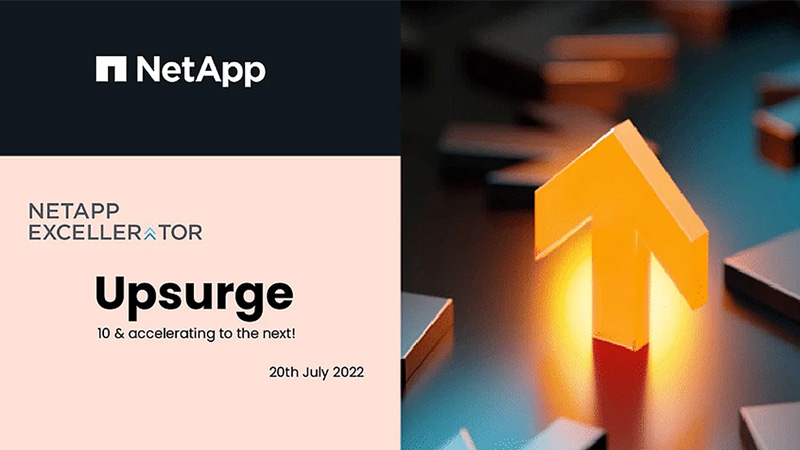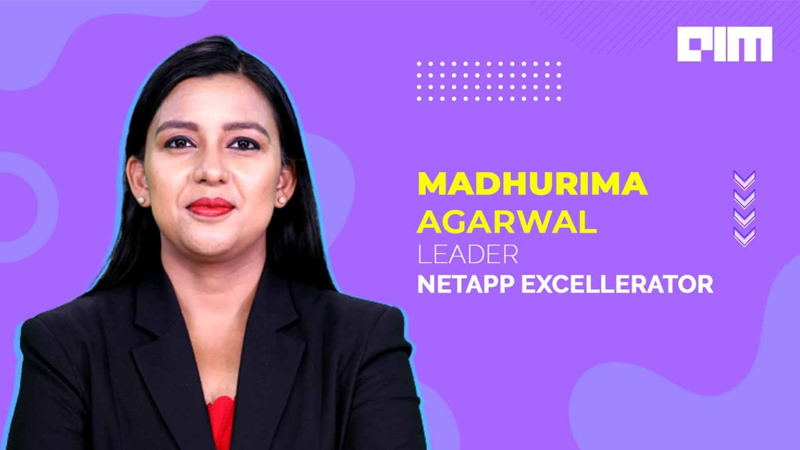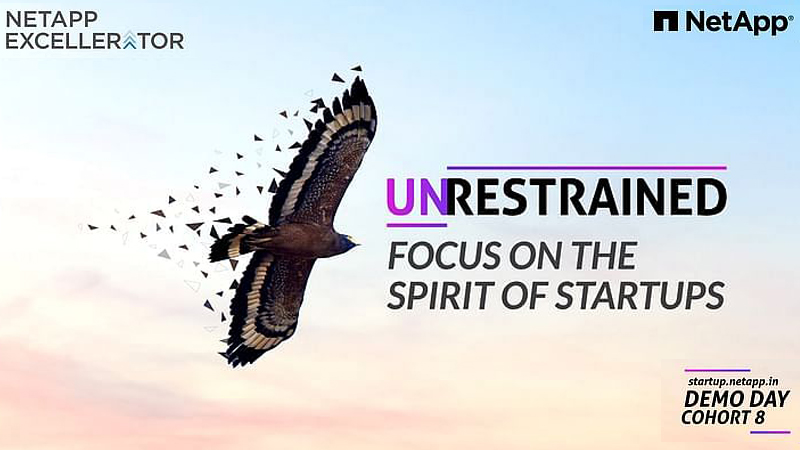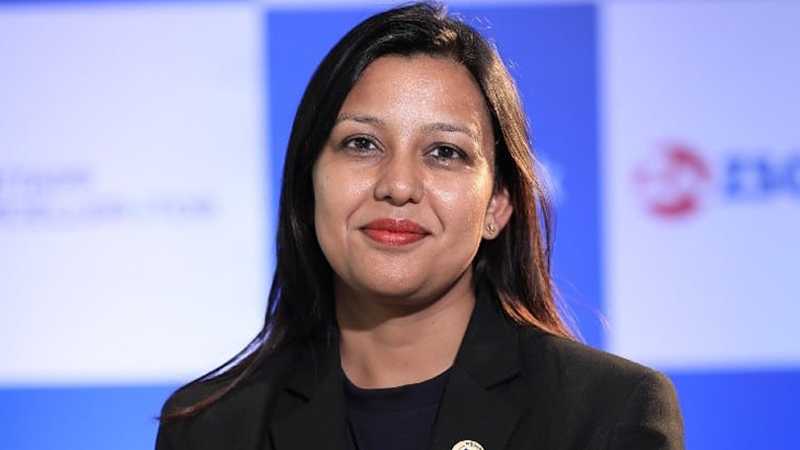PITCHES BY DEEPTECH STARTUPS DOMINATE THE 11TH EDITION OF NETAPP EXCELLERATOR
The 11th edition of the NetApp Excellerator programme recently came to a close with a spectacular Demo Day for Cohort 11. The event, held in Bengaluru, gave viewers a glimpse into the latest technologies in the deeptech sector, insights from NetApp leaders and an amazing fireside chat with badminton legend Pullela Gopichand.
With the aim to highlight the increasing number of global startups building from India, for the world, the Demo Day saw the innovations of six inspiring startups that are currently revolutionising the deeptech space. Founders of startups like AppSentinels, RapL, PrivaSapiens, Firefly, Squadcast, and Zluri presented at the Demo Day.
Emphasising on NetApp’s role in data management, Ravi Chhabria, Managing Director, NetApp India, said the event brought together people united with the same purpose – the belief that we are changing the world with data.
The NetApp journey
From being founded on the back of a napkin almost 30 years ago to becoming an industry leader in storage and data management solutions, NetApp has come a long way. Chhabria credited this growth to the company’s desire to keep innovating.
“We did not innovate the network file system, but we out-innovated the inventor of the network file system. And we didn’t stop there. In the midst of the dotcom wave, NetApp saw the opportunity to create an efficient unified storage platform. At a time when companies were rolling like pins hit by a ball, NetApp was thriving,” he said.
Looking at the current ecosystem, Chhabria believes that the industry is changing the world and crazy innovators is a badge the team is proud of.
Octavian Tanase, SVP, Engineering, NetApp, echoed similar sentiments by stating that NetApp always had a passion for innovation. This passion helps the team understand what it takes for a creative idea to transform into something that has business value. “We have done many things to co-innovate with customers and partners. That came from a deep understanding of the type of data storage problems customers face,” he said.
The NetApp Excellerator impact
Tanase further elaborated on the distinct impact the programme has had over the years. Now in its sixth year, it has impacted 72 startups across 11 cohorts. A key part of the programmer’s purpose is to give women-led startups a platform through NetApp ExcellerateHER. To that end, 12 of these 72 startups are being driven by women.
Over the years, more than $330 million have been raised by companies mentored by NetApp Excellerator. Seven of them have had successful exits. These companies are operating in a vibrant, flourishing ecosystem of innovation.
“We are very fortunate to be the recipient of the energy these startups bring. These startups have massive optimism. They bring a new use case and opportunity that can transform into something commercially viable. We thrive on this engagement,” Tanase said.
Lessons from a legend
The event also had an insightful chat with badminton great Pullela Gopichand. Talking to Chhabria, Gopichand spoke about his initial days as a cricket fan, the importance of pride, and what goes into the creation of champions.
Gopichand’s entry to badminton happened by chance. The stadium he went to did not have admissions in cricket. The other option was tennis. “But my parents decided against tennis because they thought it was a rich man’s sport. The badminton court was empty so I went and started playing there. I am a great believer that it was destiny that took me there,” he said.
At every step, Gopichand knew the next step was possible with a little more work. That is how he achieved his goal. The years 1991, 1992, and 1993 were great for him as he was starting to become the number 1 player in the country. He began to travel abroad and participate in tournaments. One tournament stands out in his memory. During a tournament in Malaysia, the Indian contingent was joking about how they could never win against the Chinese. It was then that Gopichand decided to win. “What I am proud of is the fact that I had the kid in me alive after so many losses,” he reminisced.
Looking back, he credits pride as the secret sauce to his success. “My mother would say that the first child is for the family, but the second child is for the country. I was supposed to join the army so that sentiment was there. When I was playing against an English guy from England, in my mind I would be thinking that these guys have ruled us so I need to get back at them. I will not lose against these fellows.
“Somewhere, those elements truly helped. Because when pride is hurt, that’s the only time you are punching above your weight. You are just going out and saying ‘I will get it’. I love the ethic of the sport and the focus it brought me, but I would go back and credit my winning to pride,” he said.
When it comes to picking the right talent, Gopichand believes that the term ‘talent mapping’ is more accurate than ‘talent identification’. It is because he believes that every kid is talented and it’s his job as a mentor, society, and organisation to see where the talent lies.
“A lot of work needs to happen at the system building stage, so I hope the nation comes together,” he said.
Impressive pitches
Gopichand’s inspiring words were followed by pitches by AppSentinels, RapL, PrivaSapiens, Firefly, Squadcast, and Zluri. Each of the pitches was preceded by inspiring words by their mentors.
Here’s a quick look at the startups that participated in the Demo Day:
1. AppSentinels: It is a full life-cycle API security platform that helps development teams build secure APIs and aids security teams in protecting against run-time business-logic API attacks.
2. RapL: RapL helps build your next gen workforce by empowering them via AI-driven adaptive, bite-sized, and continuous learning.
3. PrivaSapiens: It builds privacy technologies and product layers for businesses to enhance user security and meet global security compliance standards.
4. Firefly: Its Cloud Asset Management solution enables DevOps, SREs, and Platform Engineering teams to control their entire cloud footprint and manage it more efficiently using Infrastructure-as-Code.
5. Squadcast: It enables tech teams to enhance their Incident Resolution process using SRE-focused tools such as alert routing, automated escalations, on-call schedules, and blameless post-mortems, in both web and mobile app versions.
6. Zluri: It is a SaaS management platform that helps enterprises discover, manage, and automate their SaaS apps from a single dashboard.















